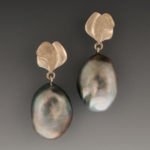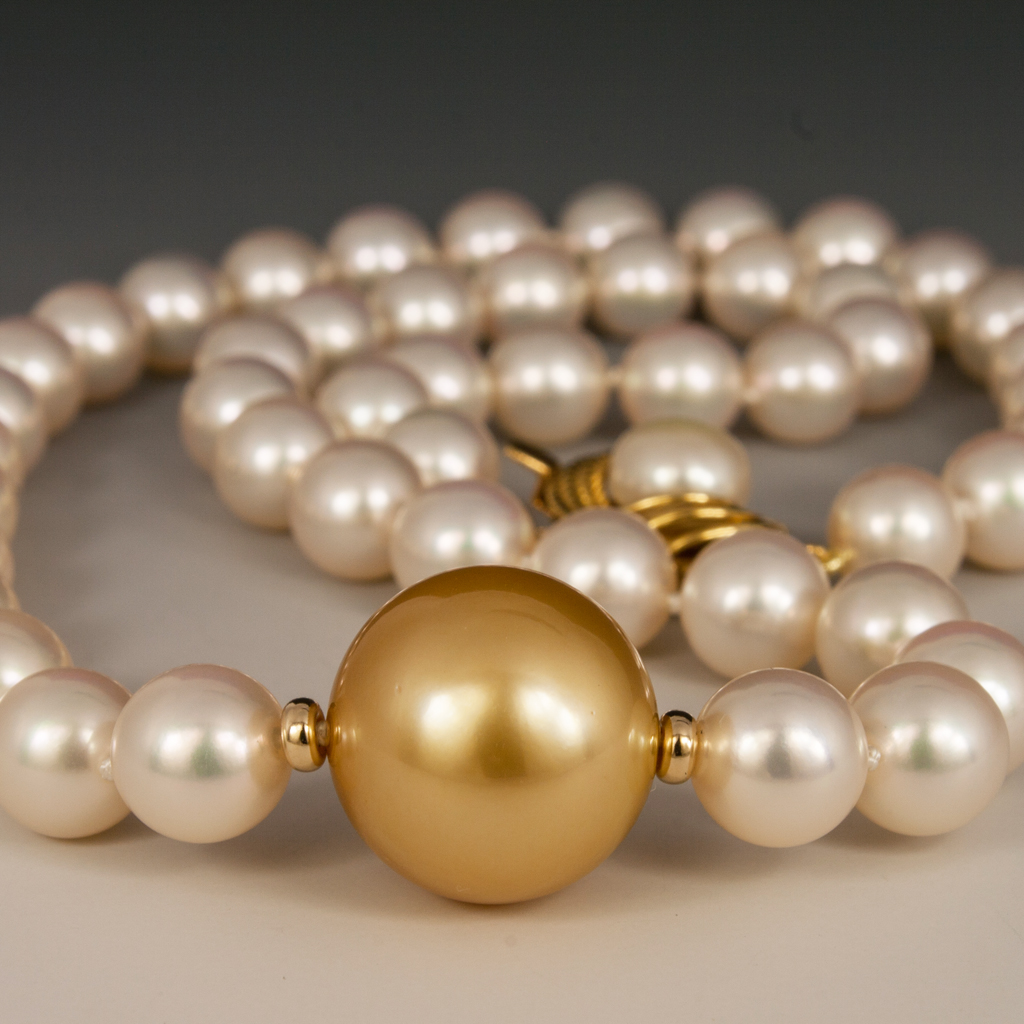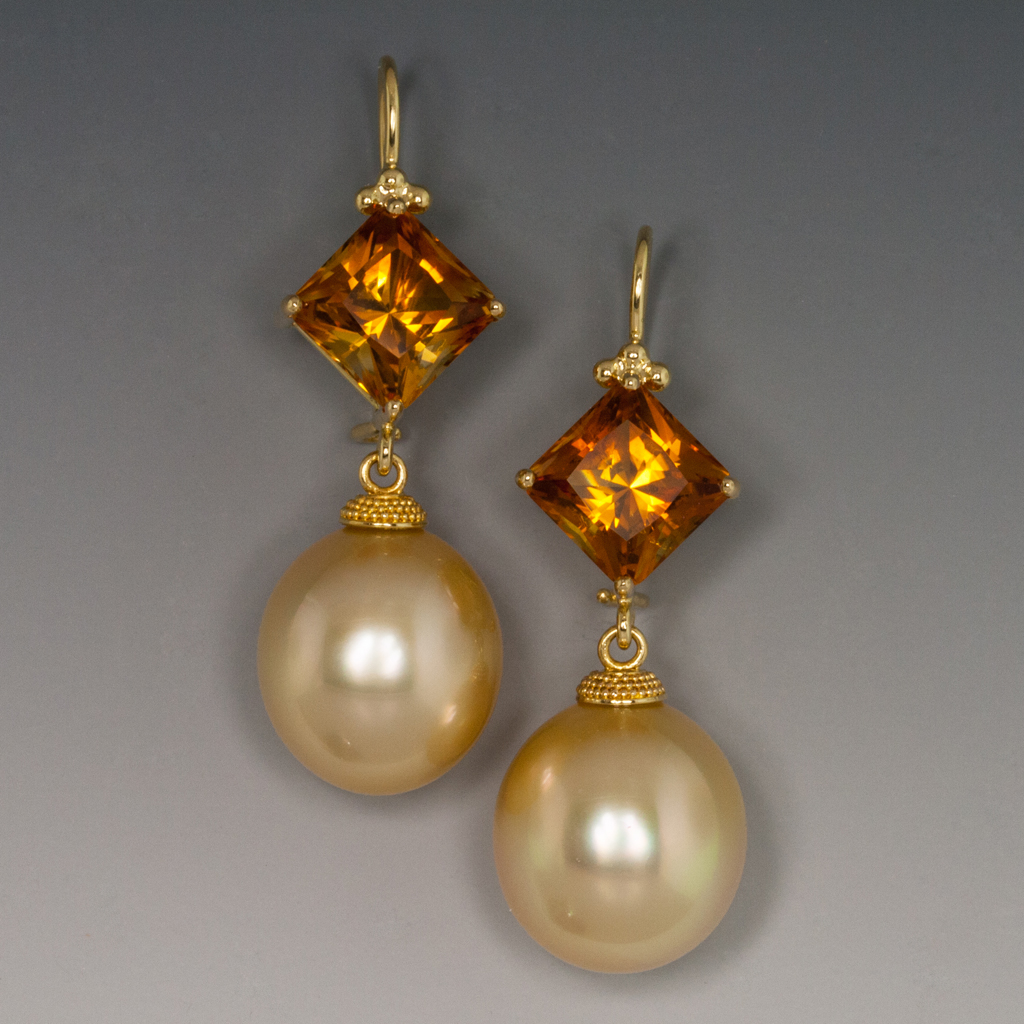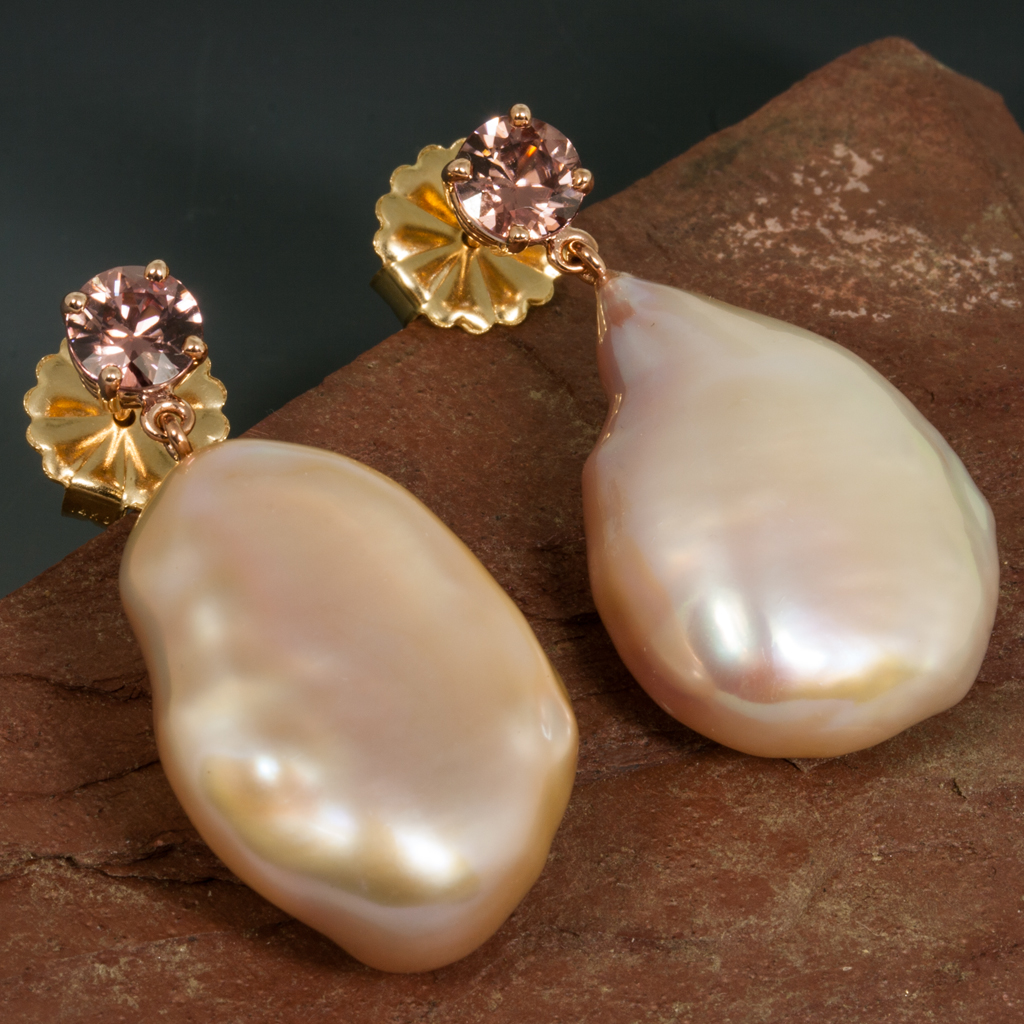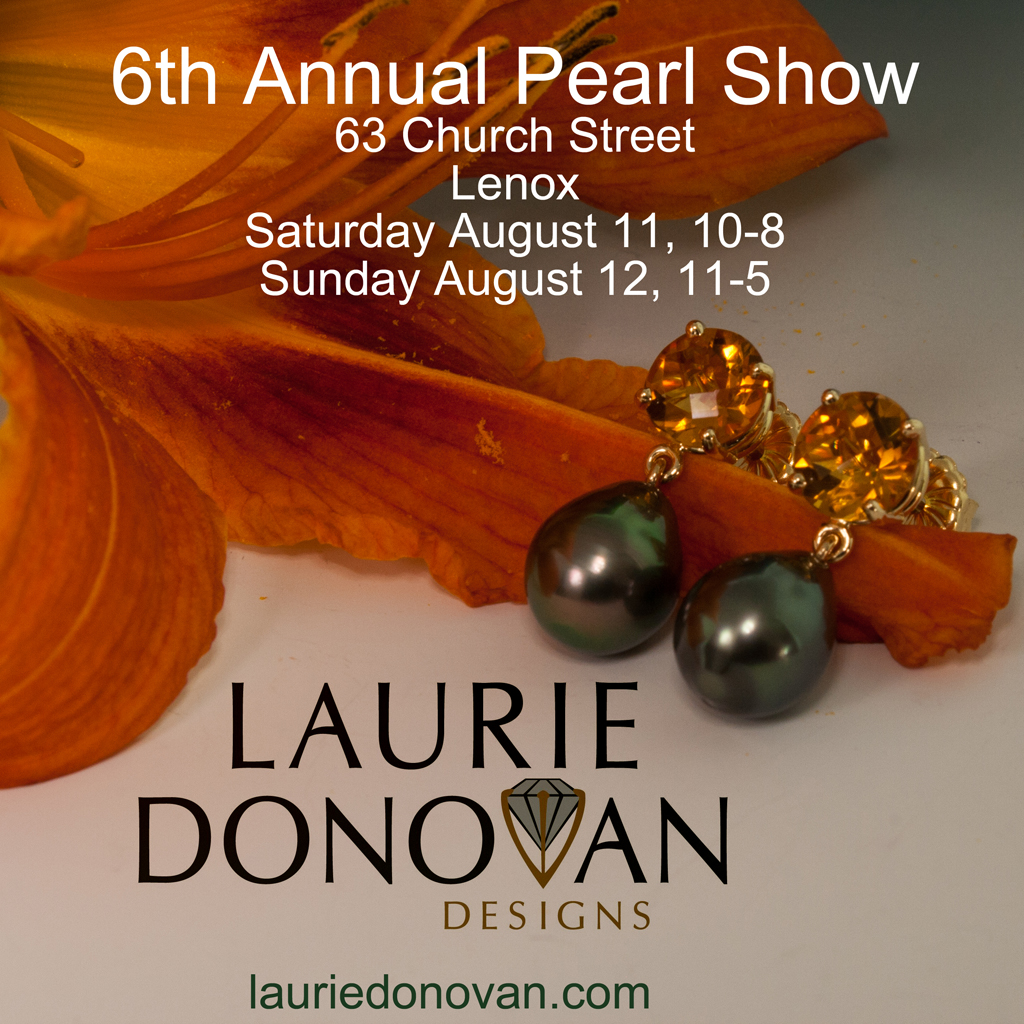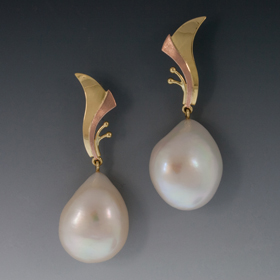
Pearl and Alexandrite are June’s birthstones. Through June, our Lenox, MA Gallery will showcase pearls in their myriad of colors and shapes. If you have a June celebration such as a graduation, birthday, anniversary, or wedding to attend, then pearls will make the perfect, classic gift.
So what exactly is a pearl? What is the ideal pearl? What are the most valuable pearls?
A pearl is a hard object produced within the soft tissue (mantle) of a living shelled mollusk. Gem quality pearls are almost always nacreous and iridescent, like the interior of the shell that produces them. Pearls have a hardness of 2.5 – 4.5 on the Mohs hardness scale.
The ideal pearl is perfectly round, smooth, and lustrous. Other shapes are known as “baroque pearls” and they often create jewelry of compelling beauty.
Pearls that occur spontaneously in the wild are extremely rare and this rarity makes them the most valuable pearl. Wild pearls are referred to as “natural” pearls as opposed to cultured pearls or “farmed” pearls that can come from both pearl oysters and freshwater mussels.
For more information on pearls, click here. For information on June’s other birthstone, Alexandrite, click here.